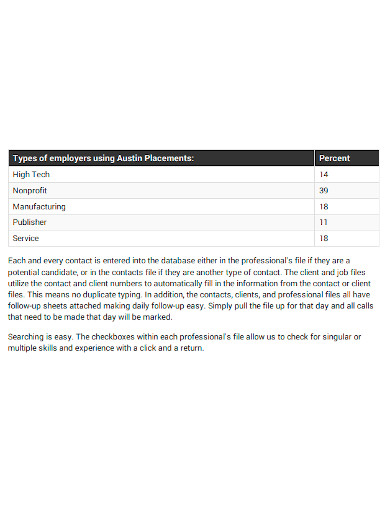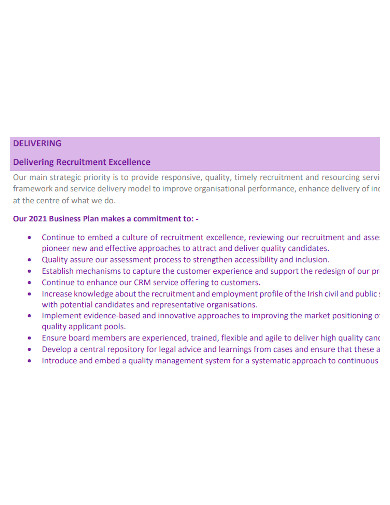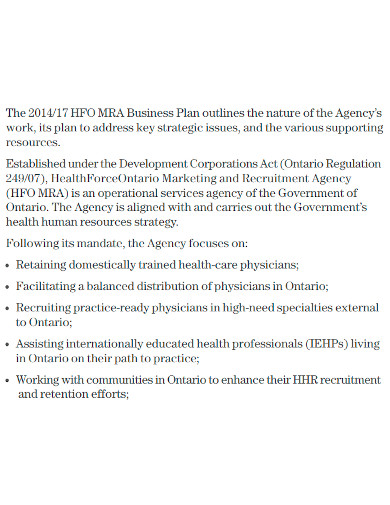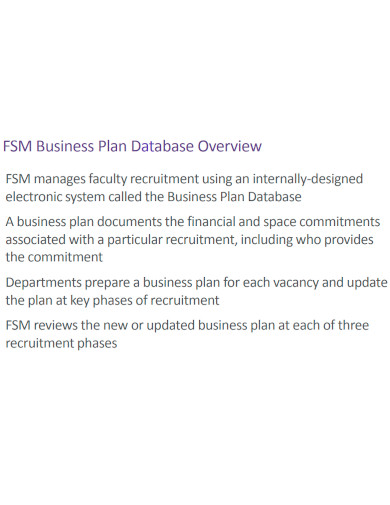It can be challenging for fresh graduates and job seekers alike to look for suitable jobs that fit their specializations. Most of the time, constant rejections from the jobs they are applying for takes a huge toll from their morale and would generally cause them to lose motivation to continue looking for jobs that fit their skillset. Recruitment businesses and agencies help jobseekers to eliminate these worries. These establishments act as the middle men between employers and job seekers. They work on behalf of employers who want to find suitable candidates to fill their vacancies. Recruitment agencies rely on an already established relationship with several employers from other businesses and companies. But what if they don’t have that connection yet? What tool can the business use to make sure that the venture will be successful? It’s already quite obvious because you’re already here reading this article. With a recruitment business plan.
Businesses are generally difficult entities to manage, even much more when your business deals human resources. It’s quite a chore to keep track of everything else and to make sure that every component of your business operations is covered. This is why creating a proper layout for a comprehensive plan is very important for businesses of all shapes and sizes, startup businesses or not. A layout helps keep everybody affiliated with the business, especially managers and supervisors, to stay on track for everything else that may be encountered during the overall duration of their business. A good and comprehensive plan just does a really good job of bringing the concept of your business really well and makes every business operation smooth.
Operating without a business plan is usually not a good idea. In fact, those that do operate without a business plan, typically doesn’t last long. Sticking to a well written business plan comes with a slew of benefits as well. Like being able to come up and operate new ideas without having to invest too much time or resources because you’ve already allotted the specifics in your business plan. To get properly acquainted with the document, see these recruitment business plan samples that we have listed down below. After getting familiar with what a business plan is and how it works, you can then uses these samples as a guide or even as a template for when you want to establish your own recruitment business plan.
5+ Recruitment Business Plan Samples
1. Recruitment Business Plan Sample
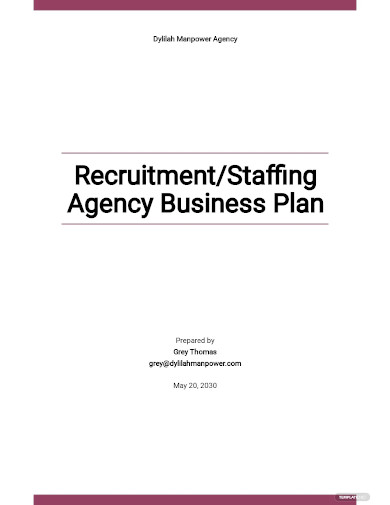
2. Recruitment Small Business Plan
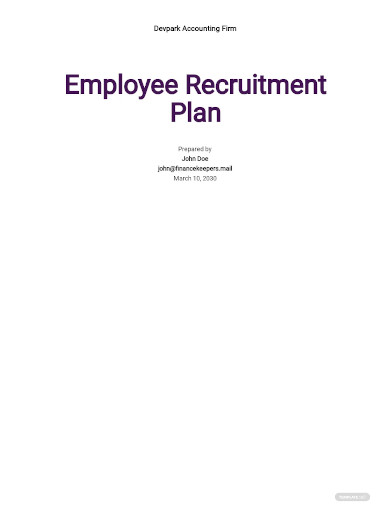
3. Printable Recruitment Business Plan
4. Formal Recruitment Business Plan
5. Recruitment Agency Business Plan
6. Strategic Recruitment Business Plan
What Is a Recruitment Business Plan?
A business plan is a document that should describe how a business would define its objectives and enumerate the steps that the management would take in order to achieve its goals. A business plan lays out a roadmap for the whole company to follow that is derived from the perspectives of different standpoints of different departments. Marketing, financial, and operational. Business plans are essential documents that is usually used to attract prospective investments even before the company has established an impressive reputation.
Although the document is more useful for new businesses and companies, every company should be able to establish a well written business plan. This will enable them to have something to review and periodically update to see if the goals that they have established have been met and if the company is just doing good overall. A good business plan should be able to outline all the projected and estimated costs of a project or venture and the pitfalls of each decision the management of the company makes. Even in between competitors of the same industry, it is very rare for two different business plans to be identical. This is because despite working with the same circumstances, most businesses tend to have different ways of dealing with their own issues.
Elements of a Recruitment Business Plan
The length and scope of a business plan greatly varies depending on the nature and the coverage of the plan the business chooses to cover. But usually all of the information in a business plan should fit into a 15 to 20 page document. And although no two business plans are alike, they do work with almost all the same elements. These elements are discussed on more detail right below.
- Executive summary
The first section of a business plan should be able to outline the company and all the information pertaining to its mission-vision values, company leadership, employees, operations, and location. Essentially, it should talk about what the company is, the nature of the business, and other basic but necessary information. - Products and services
The company should then outline the products or services that they may offer. This section should include pricing, product lifespan, and the benefits a customer may gain after availing these services. Other factors that you can include is manufacturing and production processes, patents, and proprietary technology. - Market analysis
The company needs to have a crystal clear idea of its target customers and their respective demographics. It will outline who or what the competition is and will eventually give you a better idea of how to stay on top of the market. It should also outline the expected consumer demand for the recruitment services and how easy or difficult it is to take advantage of that demand. - Marketing strategy
The next section should describe how the company will attract the customer base and how it intends to keep it. It should talk about what steps the management will take to reach the clients by being able to outline a clear distribution channel, including advertising campaign, marketing campaigns, and what mediums should these campaigns exist in. - Financial planning
The company should then include its financial plans in the document to attract the prospective readers of the business plan. Financial statements, balance sheets, and other financial information that may be suitable to be included. - Budget
Every company needs to have a well established budget in place. Including cost, staffing, manufacturing, development, marketing, and the rest of the expenses in your business.
FAQs
Are recruiting companies worth it?
For an entry level jobseeker, fresh graduates, applying to a recruitment company can have some benefits into it. But one has to remember that most companies won’t pay recruiting agencies to fill entry level jobs because more often than not, they can find enough employees on their own.
What is the difference between HR and recruiter?
Recruiters take care of the screening of the potential candidate, while the HR is in charge of allocating the recruited resources to a role.
What are the five elements of a business plan?
- Situation analysis
- Market
- Product or service positioning
- Setting objectives
- Strategy
One more thing to remember when writing a recruitment business plan, or any business plans in general, is that it’s not supposed to be a static document. It should be ‘live’. Meaning that it should be susceptible to change overtime. Think of it as a living entity, changing and evolving together with your company.
Related Posts
FREE 23+ Sample HR Reports
FREE 22+ Sample Strategic Plan Templates
FREE 17+ Real Estate Business Plan Templates
FREE 17+ Staffing Plan Samples
FREE 11+ Sample HR Proposals
FREE 10+ HR Consulting Business Plan Samples
FREE 10+ Talent Management Strategy Samples
FREE 8+ Sample HR Action Plan Templates
FREE 21+ Sample Flow Chart Templates
FREE 14+ Sample HR Dashboards
FREE 14+ One-Page Business Plan Samples
FREE 14+ Sample Marketing Strategy Templates
FREE 10+ Contractor Safety Plan Samples
FREE 9+ Sample Process Chart Templates
FREE 9+ Immigration Business Plan Samples

